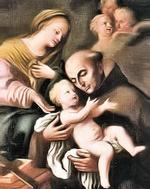The Eucharist: the ultimate reality
By Phil Lawler ( bio - articles - email ) | Apr 16, 2025
On Holy Thursday, our thoughts and prayers focus on the astonishing gift of the Eucharist. My own meditations invariably touch on a theme that was a favorite of the late Jesuit theologian, Father Donald Keefe, about the historic reality of the Eucharist.
There can be no Eucharist without the Church. There can be no Church without the Eucharist. But this is not a chicken-or-the-egg situation; in this case there should be no doubt which comes first. On any given Sunday (or weekday), the Church makes it possible to celebrate the Eucharist. But in the timetable of Divine Providence, sub specie aeternitatis, it is the Eucharist that creates the possibility of the Church. Because the celebration of the Eucharist, the holy Sacrifice of the Mass, is the re-presentation of Christ’s Sacrifice on Calvary, without which the Church could not exist.
In fact, without Christ’s Sacrifice, nothing about our lives makes sense, nothing saves us from our weaknesses, or follies, and our inevitable death. As Father Keefe put it, “Either it is by Jesus the Christ’s institution of the Eucharist at the Last Supper that his One Sacrifice transcends history, or history is not transcended, and can only proceed entropically, to nullify all that is historical.”
My conversations with Father Keefe enriched my own understanding of the Eucharist, and prompted me to ask him to write an essay, “Eucharistic Affirmations,” which appeared in Catholic World Report in June 1999. In what follows I am relying heavily on, and quoting liberally from, that essay.
(Father Keefe’s complex writing style made his work challenging even for professional theologians. So I am happy to see that Ignatius Press has published an introduction to his thought, Exploring the World’s Foundation in Christ, with editor Kevin McMahon acting as native guide to help readers through the sometimes difficult prose. Still the Catholic World Report essay is comparatively accessible, and I encourage readers to give it a try.)
Father Keefe was dismayed, but not surprised, by survey results which showed that most Catholics—even most practicing Catholics—did not accept (and probably did not know) the Church’s teaching that Jesus Christ is fully present in the Eucharist. That problem, he reasoned, stemmed from the failure to understand what is actually happening at the Mass: the One Sacrifice, the offering of Jesus Christ that opens the door for our salvation. “For Catholics this is the more fundamental truth, of which the Real Presence is simply an implication.”
Too often, I fear, Catholics think of the Mass as comprised of two parts: a Liturgy of the Word followed by a Communion service. That understanding leaves out what it absolutely essential: the Sacrifice offered to the Father by Jesus Himself, acting through the agency of the priest. When we are called to “active participation” in the Eucharistic Sacrifice, it is above all a call to unite our own sacrifice to that saving act of Christ. We rightly think of Holy Communion as the greatest of gifts, yet it is a gift made possible only by that Sacrifice.
The Eucharistic Sacrifice, extended through time and space in the celebration of the Mass, completes Christ’s work of salvation, and thereby brings meaning to our lives. “Only thereby is He the lord of history, the head whose lordship is the liberation of history from futility,” writes Father Keefe. And when we neglect the historical reality of that Sacrifice, we immediately endanger our own understanding of human existence. Father Keefe warns:
With the denial of the objective offering at the Mass of Jesus the Christ’s One Sacrifice, in his Person, there ceases to be recognized, and soon ceases to be affirmed, a historical foundation for human dignity.
And again:
We should not be mistaken: the neglect of the Eucharist, the denial of the Eucharistic sacrifice, is the restoration of idolatry, for we have no other basis for the worship of the Lord of history than this.
Neglect of the sacrificial essence of the Eucharistic liturgy, Father Keefe teaches us, leads inevitably to a failure to appreciate the inestimable gift of Holy Communion. That failure, in turn, makes it impossible to recognize the meaning of human existence and the foundation upon which human dignity rests.
All of human history is a drama—a single drama—in which Jesus is the protagonist, raising our miserable broken lives up toward divinity, breaking the shackles of sin and death that would otherwise forever bind us, and leaving us the Mass as a means of playing our own little roles in the cosmic drama, sewing our own tiny threads into the grand tapestry of salvation history, nourished by his Body and Blood. As Father Keefe observes, “Deprived of this food, of the medicine of immortality, we are left to our own devices.”
All comments are moderated. To lighten our editing burden, only current donors are allowed to Sound Off. If you are a current donor, log in to see the comment form; otherwise please support our work, and Sound Off!
-
Posted by: ewaughok -
Apr. 18, 2025 4:49 PM ET USA
I have never read much of Fr Keefe, being but a simple Thomist. However, upon reading the sentence from the first quote in your post, I suspect he spent long hours reading Jesuit theologians Suarez and de Lugo, who oftentimes wrote rococo Silver Age Latin, notoriously difficult to parse. If that’s true, then those rococo sentence structures may have influenced his English prose. Of course, what he is saying is the plain truth of the Catholic faith. Perhaps I’ll get a chance to read his book.





